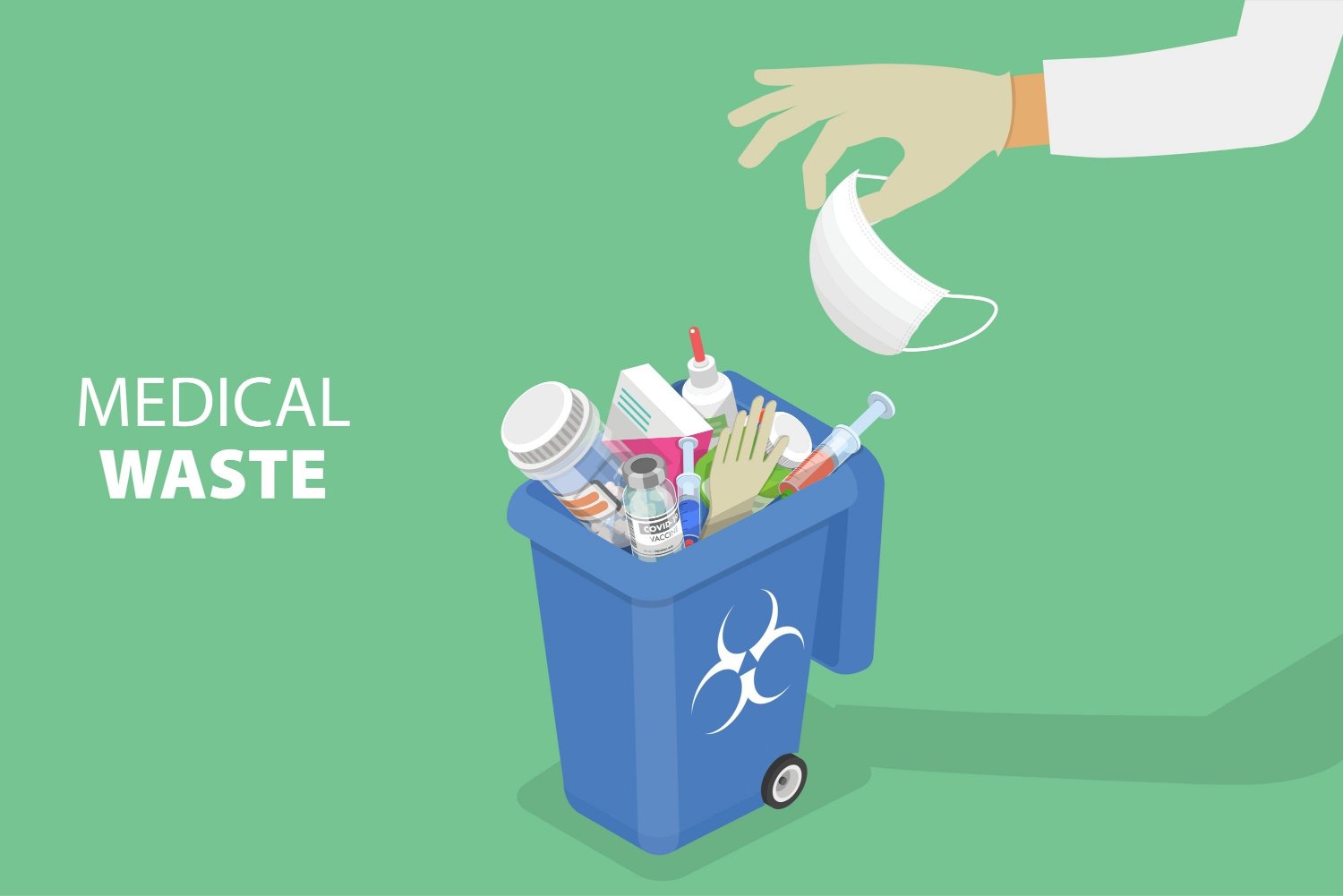Navigating Medical Garbage Disposal: Vital Providers for Health Care Facilities
In the complex landscape of health care operations, the administration of clinical waste is an important element that requires meticulous attention. Healthcare facilities, whether little centers or large medical facilities, are turned over with the obligation of handling, treating, and getting rid of a broad range of medical waste streams. The intricacies entailed in browsing with the regulatory needs, making sure appropriate waste partition, and performing secure collection and transport processes are paramount. Comprehending the vital solutions that support clinical garbage disposal is not just a matter of conformity but additionally an essential element in securing public health and environmental health. The ins and outs of this procedure are essential for health care facilities, and the competence offered in this world plays an essential role in keeping the stability of healthcare systems.
Regulatory Compliance Support
For health care centers, making sure regulative compliance assistance is important to maintain appropriate handling and disposal of clinical waste. By partnering with governing conformity experts, healthcare facilities can remain updated on developing laws, mitigate threats linked with incorrect waste disposal, and eventually add to a much safer and much more lasting environment for all.
Waste Partition Guidance

Medical care centers must provide clear standards and training to staff on how to set apart waste effectively. This includes dividing general waste from dangerous materials such as sharps, contagious waste, pharmaceuticals, and chemical waste. Color-coded bins, tags, and signs are commonly made use of to assist in waste segregation practices. Regular audits and surveillance of waste segregation processes are vital to identify any type of problems and make essential enhancements.
Collection and Transportation Providers

Correct collection and transport services are essential elements of the medical waste disposal procedure in health care centers. These services make certain that harmful materials are managed safely and in compliance with laws to safeguard both the setting and public health and wellness. Medical care facilities rely upon specialized waste management firms to provide reliable collection and transportation solutions customized to their needs.
Medical waste collection entails segregating different kinds of waste at the factor of generation, making use of color-coded bags or containers to differentiate in between basic, harmful, pharmaceutical, and various other waste streams. Once accumulated, the waste is delivered in devoted automobiles equipped to handle hazardous materials securely.
Therapy and Disposal Solutions
In the world of medical waste disposal for medical care centers, after the important phase of collection and transportation services, the emphasis moves towards applying reliable treatment and disposal options. Therapy services commonly involve processes such as autoclaving, which makes use of steam under stress to decontaminate the waste. This approach is commonly utilized for contagious waste that must be provided non-hazardous prior to disposal. Another widespread therapy method is incineration, where waste undergoes high temperature levels in regulated setups to decrease its volume and eliminate virus.
Disposal services encompass the last action in the medical waste administration process. Facilities may choose land fill disposal, where treated waste is thoroughly deposited in marked areas. Medical Waste Disposal Services. Conversely, health care centers can select to make use of waste-to-energy facilities, which blaze waste to create electrical energy. Recycling and resource healing are additionally acquiring traction as lasting disposal choices for sure sorts of clinical waste materials.
Efficient therapy and disposal services are vital in guaranteeing compliance with policies and guarding public health and the atmosphere. Medical care facilities have to meticulously review and choose suitable methods that line up with their waste monitoring goals and sustainability initiatives.
Staff Training and Education And Learning

To efficiently manage clinical waste disposal in healthcare facilities, extensive staff training and education play an important click now duty in guaranteeing adherence to governing demands and keeping a secure environment. Appropriate training outfits team with the understanding and abilities required to deal with different sorts of medical waste, segregate them properly, and package them firmly for disposal. By enlightening employees on the threats related to incorrect handling of medical waste, centers can reduce the likelihood of mishaps, contamination, and regulatory offenses.

Verdict
Finally, health care facilities count on crucial clinical waste disposal solutions to guarantee regulatory compliance, proper waste partition, risk-free collection and transport, reliable treatment and disposal, as well as personnel training and education. These services play a vital role in preserving the wellness and security of both healthcare workers and the basic public, highlighting the relevance of correct management of clinical waste in healthcare settings.
For health care facilities, making sure regulative compliance support is important to maintain appropriate handling and disposal of medical waste. Waste partition includes classifying different types of medical waste to make sure ideal handling, therapy, and disposal. This includes separating basic waste from harmful products such as sharps, contagious waste, pharmaceuticals, and chemical waste.Clinical waste collection involves setting apart different types of waste at the point of generation, using color-coded containers or bags to differentiate in between basic, dangerous, pharmaceutical, and other waste streams.In about his the world of clinical waste read the full info here disposal for medical care centers, after the crucial phase of collection and transportation solutions, the focus changes in the direction of carrying out reliable treatment and disposal solutions.